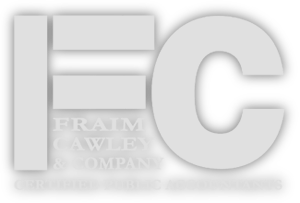Originally published September 9, 2013:
“It is an immutable law in business that words are words, explanations are explanations, promises are promises – but only performance is reality.”– Harold Geneen
The world has always been filled with promises – some good and some bad. Friends and relatives make commitments to us out of the goodness of their hearts. Many acquaintances and business associates will try to guarantee as much as they can and with honest intention. Unfortunately even with the best motives, some of these promises – for one reason or another – are never followed through on.
And some people promise things purely out of greed with no intention of keeping the promises made. Crooked politicians and dishonest business people have become almost synonymous with this type of “pre-broken” promise.
The point being, regardless of people’s intentions, promises are often broken or at least not fulfilled. This may be due to some kind of chicanery or it could be due to something that was completely beyond the promisor’s control. As Ovid once said, “everyone’s a millionaire where promises are concerned.” Because of this, many people (consumers) have become jaded.
That is why I often caution my business clients against pricing that is heavy on upfront charges. Even if there is no fraud involved, and even if we can and do have the practice of keeping our business promises, large upfront fees can change the tenor of the conversation completely – and end up causing the business to scare away potential customers. To the consumer, the requirement for upfront money smacks of charlatanism and invokes images of a seedy, 1970s mustached used car salesman.
(SEE NOTE AT THE END of this article for situations/industries that are legitimate exceptions to this no-upfront-cost rule.)
Like most people, I receive calls or emails on a fairly regular basis pitching me some kind of product or service. Even though I do not need them the majority of the time, I try to at least listen. But at the point in the conversation when I hear “$500 deposit”, “one year contract”, “monthly minimum”, or anything of the like – my interest dissipates completely.
Why? Because there are so many people out there promising you big results if you pay them upfront. And as outlined below, sometimes this may be justified and necessary. But if the customer perceives it to be unnecessary, then you’ve probably already lost the sale.
For example, most of my business associates know that I am a big believer in search engine optimization. But just for my own curiosity I like to read the industry publications to have a basic understanding of the theory. One day I stumbled on a site that sells “backlinks” to your site on other sites. I wasn’t going to purchase their product regardless, but the links cost $1-3 apiece and the company requires a $400 deposit. Why on earth would you do that? If the product is legitimate, the results will speak for themselves. But requiring a huge payment before any services have been rendered just reeks of dishonesty.
And that’s why I almost never require a deposit/retainer and advise most of my business clients to do the same when they can. I believe my services speak for themselves. If I do a good job for a client, I find that they will pay me in a timely manner so that they can come back for more service. I am confident in what I do and the value I provide. Requiring a deposit, unless it is a special situation or industry where it is necessary, can often give the opposite impression. It can may leave a bad taste in the client’s mouth and might even cost you the job.
Note: In certain industries or professions the use of a large deposit is necessary and/or standard practice. Construction companies, custom manufacturing businesses, etc. – industries that involve heavy capital outlay to complete an order or project – often by necessity require a large deposit. Attorneys undertaking a project for a client that will involve a significant number of billing hours at the outset frequently require a retainer and work from that – tallying hours against the initial retainer. These are not objectionable practices. For most businesses in other industries though, such arrangements are not necessary or customary, and the points made above in the article stand. As always, if you have any questions whatsoever or would like to talk please call me at (540) 314-0345.
IRS Circular 230 Notice: To ensure compliance with requirements imposed by the IRS, we inform you that any federal tax advice contained in this communication (including any attachments) is not intended or written to be used, and cannot be used, for the purpose of avoiding penalties under the Internal Revenue Code.




